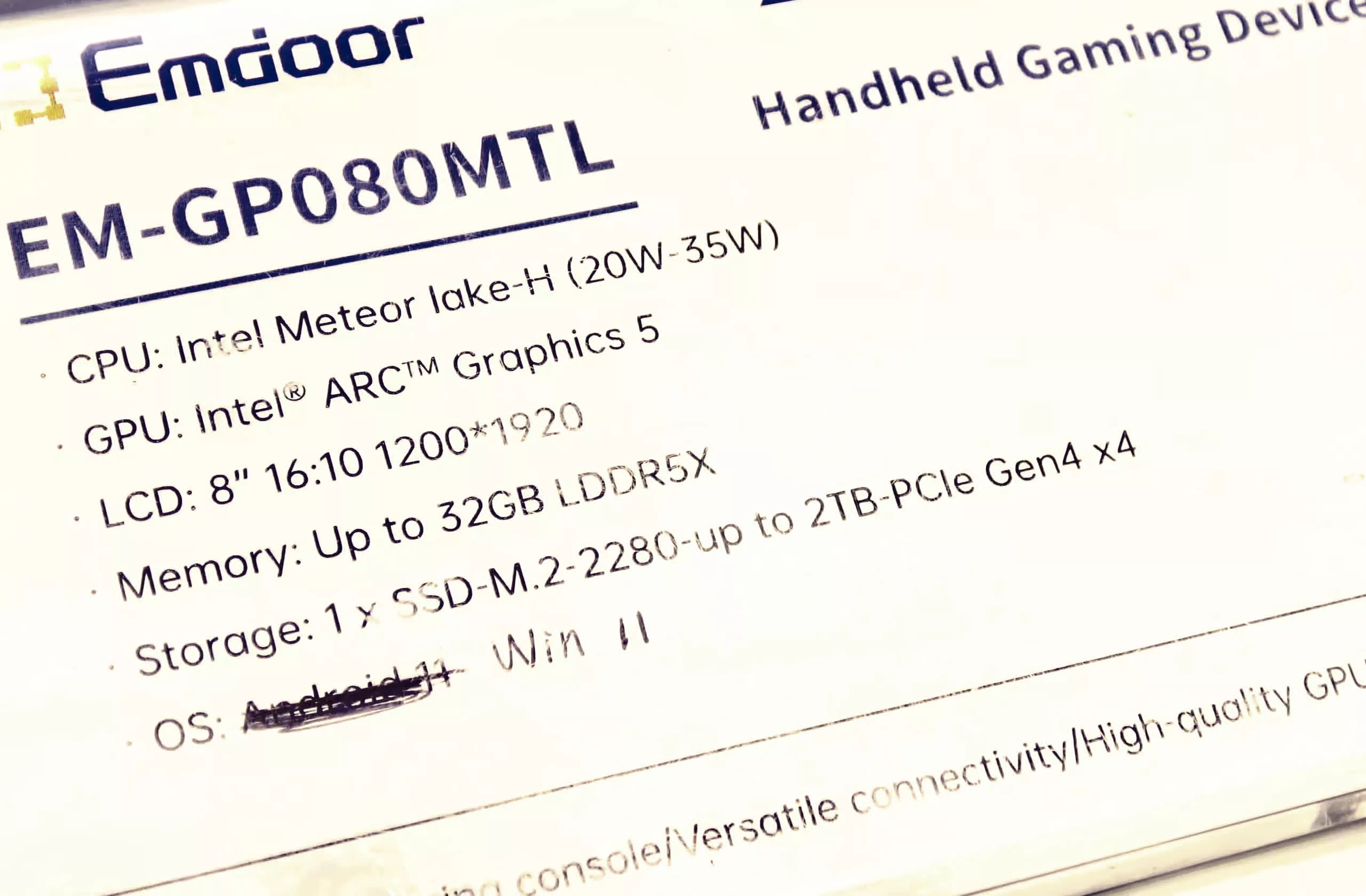Something to look forward to: The recent surge in handheld gaming PCs has been made possible in part due to AMD's mobile APUs, but Intel could disrupt things. A new entrant in the market might provide an early preview of the company's forthcoming Meteor Lake chips, which are expected to bring about a fundamental redesign of the company's architecture.
Chinese hardware company Emdoor recently introduced its entry into the emerging handheld gaming PC market. The device closely resembles recent products from Lenovo, Asus, GPD, and Valve, but under the hood, it runs on a processor from Intel's upcoming Meteor Lake series.
Named the EM-GP080MTL, this Windows 11 portable gaming system features a Meteor Lake-H CPU, integrated graphics based on Intel Arc 5, and an 8-inch 16:10 1,920 x 1,200 LCD screen – although the company didn't specify the refresh rate. It supports up to 32 GB of LPDDR5X RAM and up to 2 TB of PCIe 4 NVMe storage.
It's unclear how this system compares to the numerous competitors utilizing variations of AMD's 7000U-based Z1 series, such as the GPD Win 4, Asus ROG Ally, Steam Deck, and Lenovo Legion Go. However, Emdoor demonstrated its product running God of War without obvious performance issues, and its menu screen suggests the ability to play titles like Elden Ring, indicating AAA gaming capabilities similar to the AMD-based handhelds.

One notable aspect of the EM-GP080MTL is its TDP, which ranges between 20 and 35 watts, while none of the 7000U products exceed 30 watts. This could give it an advantage over the competition, albeit at the cost of battery life (the Steam Deck, for instance, conserves energy by staying under 14W). However, it's still premature to make performance-per-watt comparisons between Meteor Lake and the AMD APUs.
Moreover, the Arc graphics chip supports Intel's XeSS upscaling technology, which could enhance image quality sufficiently for an 8-inch screen at resolutions well below the native 1200p in supported games, significantly improving performance. Impressions from earlier this year regarding this feature have been positive.
In terms of form factor, the handheld follows a typical design. It features a full set of gamepad inputs, along with two back paddles and two USB-C ports. Two additional buttons on the front of the device allow for OS-level menu access to control power profiles and other options. Emdoor didn't mention external GPU support, which some other portable PCs use for extra processing power when docked.
The company has not provided details on a release date or price yet, but the EM-GP080MTL could potentially launch in time for Meteor Lake's December 14 debut, making it one of the first products to showcase its capabilities. Intel's upcoming CPU lineup marks the most significant architectural change in years, featuring AI accelerators and a chiplet-based design. While the series primarily targets notebooks, it has the potential to be well-suited for handheld gaming.
Image credit: Notebook Italia
https://www.techspot.com/news/100558-meteor-lake-arc-5-powered-handheld-gaming-pc.html